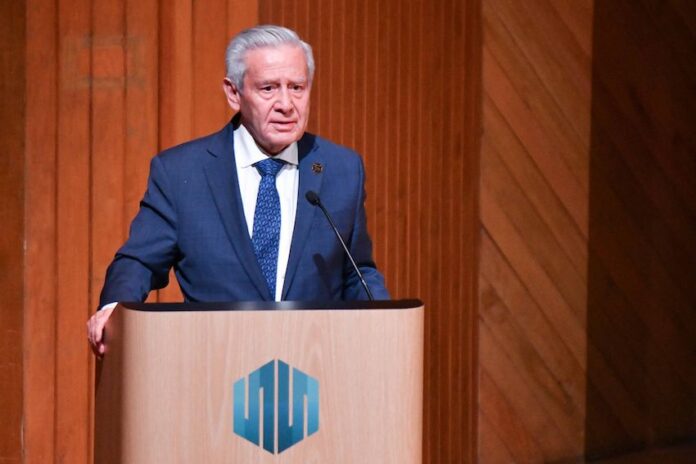Mexican regulator, the National Banking and Securities Commission (CNBV), fined CIBanco, Intercam and brokerage firm Vector on Tuesday after the U.S. announced sanctions on the three financial institutions for alleged money laundering in June.
CNBV fined the three firms a total of 185 million pesos (US $9.8 million), due to “non-compliance in administrative processes,” Mexico’s Finance Ministry said in a press statement on Tuesday.
Intercam was fined 92.15 million pesos ($4.9 million), CIBanco 66.61 million pesos ($3.55 million) and Vector 26.46 million pesos ($1.4 million).
The Finance Ministry reiterated that despite the announced U.S. sanctions on CIBanco, Intercam and Vector, no evidence of wrongdoing has been forthcoming.
“If we have conclusive information that proves illicit activities of these three financial institutions, we will act with the full force of the law,” the ministry’s press statement read. “However, to date, we have no such information.”
Most of the fines on Intercam and CIBanco were related to money-laundering prevention, while Vector faced fines for failure to publish mandatory information.
The fines reportedly corresponded to June, when the CNBV took control of the three financial institutions.
CIBanco, Intercam and Vector win temporary reprieve from US money laundering sanctions
On June 25, the U.S. prohibited the execution of fund transfers to and from Mexico’s CIBanco, Intercam and Vector after they were found to have laundered money in connection with illicit opioid trafficking by the U.S. Treasury’s Financial Crimes Enforcement Network (FinCEN). All three have denied FinCEN’s allegations of money laundering.
An estimated 30% to 40% of clients with significant funds in the affected financial institutions had alternative bank accounts and withdrew their funds in the first two days after the FinCEN accusation, according to CNBV’s vice-president José Antonio Quesada.
On July 9, FinCEN announced that CIBanco, Intercam and Vector would have an additional 45 days, until September 4, to meet certain standards before receiving sanctions.
“It is very difficult to see what future these institutions may have if the sanction issue is not resolved quickly, and from experience, I can say that these things are not resolved quickly,” Victor Manuel Herrera, the president of the National Committee for Economic Studies of the Mexican Institute of Finance Executives (IMEF), said in a press conference.
With reports from Reuters and El Financiero
